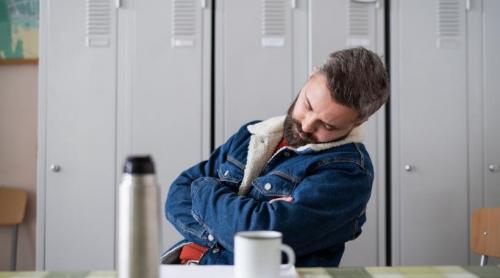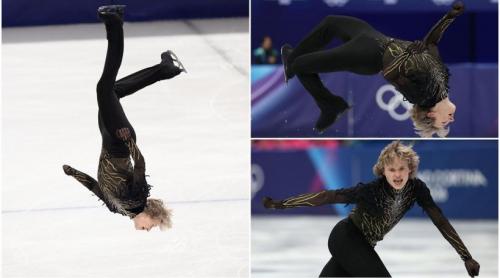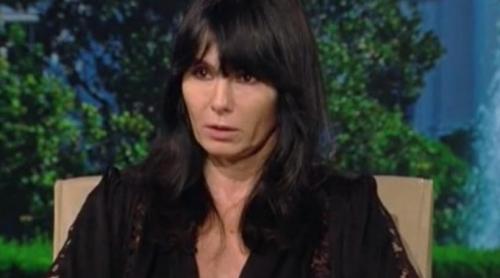
Rodica Gordon Radian, the current Israeli ambassador to Romania, wanted to experience first hand the changes in a country in transition like the Eastern European nation is.Radian came back home after 40 years living away from its native Romania, and provided us the diplomat""s view on the country. Jurnalul National interviewed her.
Jurnalul National: For how many years have you been living here?
Rodica Gordon Radian: Already two years had passed since I have been located here as a diplomat. My expectations before my arrival here were met, in the sense that what I found here was pretty much what I expected. I am fascinated with a country in transition; I know that Romanians think changes are slow to come by, but I, as an outsider, witness an alert rhythm of changes which occur almost daily. The way people in the street and their cars look, or the buildings which spring up with an astonishing speed show positive changes of this transitions taking place in the daily life too.
JN: Still, you come from a society which is accustomed with speedy changes.
RGR: That is true. Yet, changes here, in Romania, are swift, from the pace of life to the infrastructure. A whole society is being built during these years, and this is an important fact to witness for me. I whished for such an experience and now it came true.
JN: How about the keen, critical eye of a woman? You must have seen negative sides too.
RGR: Sure, there are a lot of weak spots I can see, but everybody is aware which those spots are and what is to be done to mend things. There are difficulties to be met, yet the overall situation is going to be better.
JN: How is it to be a female ambassador in Romania?
RGR: I feel very comfortable here, both among my fellow ambassadors and in my meetings with Romanian officials. Maybe people are more polite here, when compared with the Israelis, which tend to be more direct and less formal in their contacts.
JN: How does the view some hold, that women should take care of household chores and family issues, marry with a professional life?
RGR: The Israelis do not hold such views any longer. It is never an easy task to work either as an ambassador or as a representative of a major company in a foreign country. When one goes to work as an ambassador, one travels with oneâs whole family. I, for instance, have three boys between primary and high-school ages. So, they were uprooted from their familiar environment when they followed me here, in a foreign land to them. But this would have occurred had I been a man too. I have my mother here, to help me. When I get back home after work, a new day starts out for me. Being in a foreign country brings us closer as a family, as we spend more time together than we probably would have were we in Israel. And we dedicate our week-ends to our kids only.
JN: Did your children learn Romanian?
RGR: Very little. They did not speak Romanian back home, since we use only Ivrit, as my husband is of Polish origin. And here, in Romania, the children study in English.
JN: Are there any issues, specific to Romania that you are not yet used to, two years on?
RGR: Of course. Taking a stroll is still not pleasant, since there are so many stray dogs and so many holes in the pavement. I try to overlook such issues, since I constantly remind myself that Romania is undergoing a transition period. Sure, I would prefer though for Romanians to not continue having such problems.
JN: How do you find the Romanian political scene?
RGR: Fascinating.
JN: Always surprising, I assume. But is this in the good sense or in the bad sense of the word?
RGR: The current state of Romanian politics looks familiar to me, since it is so alike the Israeli politics.
JN: Is there a deja-vu feeling you have when watching Romanian politics?
RGR: Having no one party able to garner political support in order to rule alone forces parties into coalitions, which in turn subject the parties to various pressures that do not necessarily stem from the act of government, but from the reality of negotiation. I believe there are a number of countries which face the same political reality. I also believe that Romanian politics prove to be dynamic and adapting to the needs of coalition politics. On the other hand, it is pretty difficult for me, as an ambassador, to adapt to so often changes of public dignitaries â¦
JN: What is your life outside your official capacity? Who is cooking the meals at home, for instance? Your mother?
RGR: No. I have hired help. It is clear I would not be able to do it all on my own. As an ambassador one has to take part in a lot of social functions after office hours, hence I keep clear my week-ends of any activities which might take me away from my family.
JN: Is it hard for you to find places to entertain your family in?
RGR: I do not go out, as rule, in my free time. Maybe this is also due to the fact that I go out a lot as part of my job as an ambassador. The only time I keep for myself is the one I go to swim, several times a week. But I like my active life and I would not change it for another.
JN: How did your husband deal with your status as an ambassador to Romania?
RGR: He is totally supportive of my career path. We agreed for him to spend the week working in Israel, and to join us for the week-ends here. It is not an easy solution, but this allows us both to preserve our careers. More and more families in Israel adopt this strategy.
JN: Do you have a recipe for success in that regard?
RGR: I have no idea if this is something other couples could adopt as a strategy but it works well for me and my husband. It seems modern life presents us with options one could not consider before as viable solutions.
JN: A few years ago many diplomats regarded a position in Bucharest as a sort of punishment. Did you ever feel you had been punished when sent here to represent Israel?
RGR: Never. On the contrary: I wanted to get here for two obvious reasons - I was born here and Romania is a country in transition. Forty years had passed since I left Romania. I feel a lot of sympathy towards this country which I regard it almost as my own, and I try to convey that feeling to all my guests coming from Israel.
JN: They will say you are not in a position to pass an objective judgment on the subject.
RGR: I hope they would not. My training and my life experience are different than those of Romanians. I know the language, which made it easier for me to understand things when I arrived here, but my mind set is one of an Israeli and one of a diplomat.
JN: What is it though that you had in Israel and miss having here?
RGR: Many things. One of it is the weather, which is not always sunny here, as it is back home. Then, there are a lot of aromas and seasonings that I do not have here to add to the food. But things are evolving since more and more Israeli are coming here, some opening restaurants serving Israeli dishes, and some importing foods from Israel.
I would like to take the opportunity of this interview to point out that Israeli business people cooperated with the embassy and donated medical supplies to the County Hospital in Bacau, and many of them helped the victims of the floods on their own.
Translated by Anca Paduraru
Citește pe Antena3.ro



















